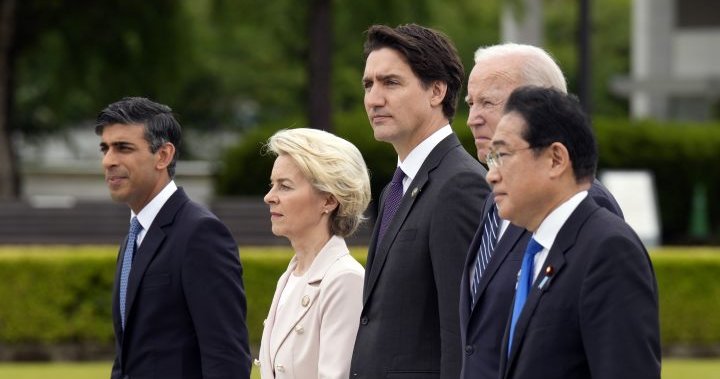U.S. President Joe Biden led a meeting of the Group of Seven advanced democracies to address Iran’s aerial attack on Israel. The G7 issued a joint statement condemning the attack and expressing solidarity with Israel. The leaders warned that Iran’s actions could escalate regional instability, and they stand ready to take further measures to prevent this. The United States assisted Israel in shooting down the drones and missiles launched by Iran, with 99% of the weapons intercepted without causing significant damage.
Biden spoke with Israeli Prime Minister Benjamin Netanyahu to urge restraint and prevent a larger retaliatory strike against Iran. The president emphasized Israel’s ability to defend itself and dissuaded Netanyahu from offensive action. Biden also had a call with Jordan’s King Abdullah II, who warned against any escalation by Israel that could lead to a broader conflict in the region. The G7 meeting aimed to coordinate a diplomatic response to Iran’s attack and encourage Israel to show restraint.
The U.S. has been working to curtail Israel’s conflict with Hamas in Gaza and protect civilian lives in the territory. The anticipation of an Iranian retaliation came after a suspected Israeli strike on an Iranian consular building in Syria resulted in the deaths of 12 people, including two senior Iranian generals. Florida Senator Marco Rubio criticized the White House for leaking details of Biden’s conversation with Netanyahu, suggesting it was part of efforts to appease those calling for a cease-fire in Gaza.
Overall, the G7 meeting was focused on condemning Iran’s attack on Israel and preventing further escalation in the region. The leaders expressed full solidarity with Israel and reaffirmed their commitment to its security. The United States played a role in assisting Israel in intercepting the incoming drones and missiles launched by Iran. Biden’s conversations with Netanyahu and King Abdullah II aimed to prevent further conflict and encourage a diplomatic response to the situation. The U.S. is working to maintain stability in the region and protect civilian lives amidst ongoing conflicts.


